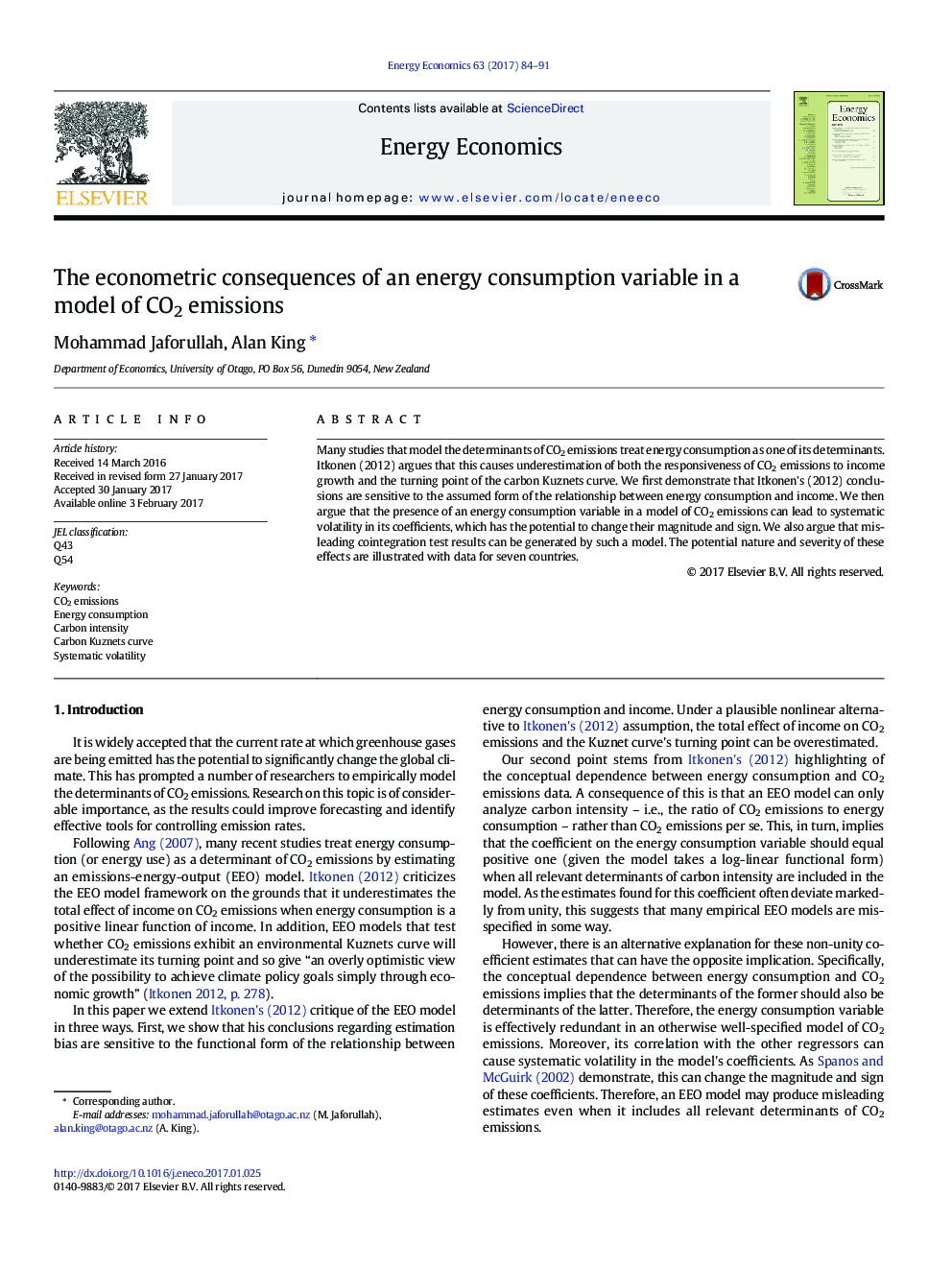| کد مقاله | کد نشریه | سال انتشار | مقاله انگلیسی | نسخه تمام متن |
|---|---|---|---|---|
| 5063727 | 1476701 | 2017 | 8 صفحه PDF | دانلود رایگان |

- Many recent studies treat energy consumption as a determinant of CO2 emissions.
- This practice can result in estimation bias.
- Energy consumption can also cause systematic volatility in the model's coefficients.
- Misleading cointegration test results can also arise.
- We illustrate these effects using data for seven countries from a recent study.
Many studies that model the determinants of CO2 emissions treat energy consumption as one of its determinants. Itkonen (2012) argues that this causes underestimation of both the responsiveness of CO2 emissions to income growth and the turning point of the carbon Kuznets curve. We first demonstrate that Itkonen's (2012) conclusions are sensitive to the assumed form of the relationship between energy consumption and income. We then argue that the presence of an energy consumption variable in a model of CO2 emissions can lead to systematic volatility in its coefficients, which has the potential to change their magnitude and sign. We also argue that misleading cointegration test results can be generated by such a model. The potential nature and severity of these effects are illustrated with data for seven countries.
Journal: Energy Economics - Volume 63, March 2017, Pages 84-91